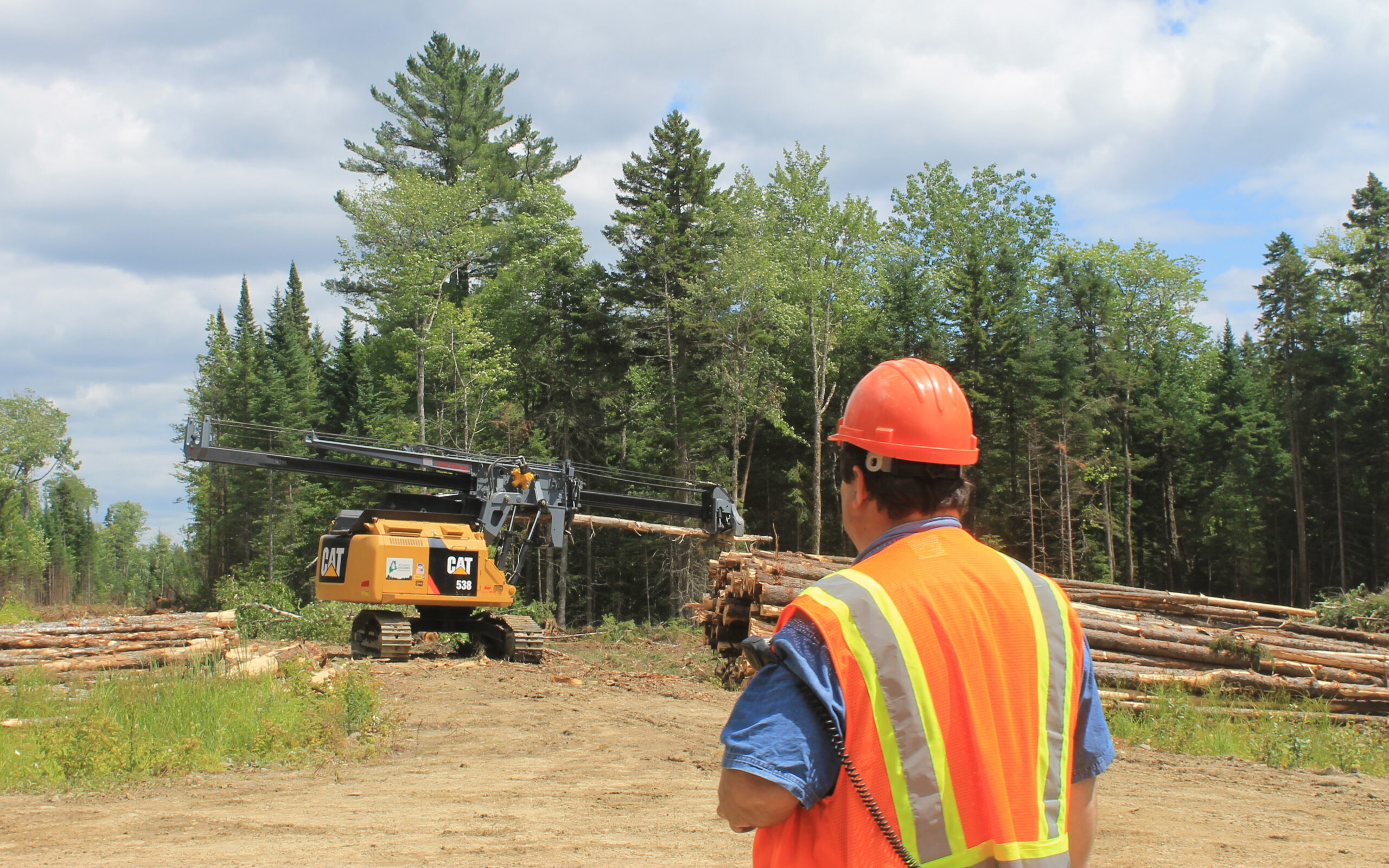
Recruiting is now underway for students in the Mechanized Logging Operations Program, which is beginning its next 12-week class June 21 in the woods northeast of Old Town.
Students enrolled in the post-secondary training program will spend weeks harvesting timber using sophisticated state-of-the-art machines like those they will encounter in the logging industry. The hands-on experience students gain operating equipment is something unavailable anywhere else in Maine and neighboring states.
This summer’s class will be the fifth since the program launched in 2017. Graduation for the class will be held in September.
“There is no better, more affordable, more efficient way to gain the experience and knowledge you need to begin a successful career as an equipment operator in the logging industry,” Dana Doran, executive director of the Professional Logging Contractors of Maine, said. “The Mechanized Logging Operations Program achieves results and I would encourage any individual with an interest in a good-paying, exciting career in the Maine woods to consider it.”
The latest class to complete the program graduated in October. The program, run out of Northern Maine Community College, was the first post-secondary training program in Maine to hold classes in the COVID-19 pandemic. This was possible thanks to rigorous safety protocols and the outdoor nature of most of the training, which involves students operating equipment while communicating with instructors and other students via radios.
The program was created thanks to a partnership between three Maine community colleges, the PLC and industry partners including Milton CAT and Nortrax.
The program gives students a broad overview of the most common mechanical systems found in modern timber harvesting equipment, and an understanding of the variables of timber growth, tree species, and markets. It also includes a strong emphasis on safety.
Students who are accepted into the program pay no tuition, but are responsible for transportation, housing and food costs. Personal Protective Equipment is provided by the program.
Anyone with an interest in the program should contact Leah Buck at Northern Maine Community College at 207-768-2768. Information and application instructions may be found online at https://www.nmcc.edu/industry-customized-training/mechanized-forest-operations/.
While the logging industry has seen some contraction in recent years, the demand for skilled operators of the feller bunchers, harvesters, grapple skidders, forwarders, delimbers and other mechanized logging equipment that now harvests more than 95 percent of all timber in Maine is strong. Many current operators are reaching retirement age and the steep costs of training new operators is driving up demand and wages. Mechanized logging operators are among the highest paid members of the logging workforce.
The new program is working in tandem with the state’s current vocational training system and so far has drawn many of its students from within the logging industry itself as well as from Maine’s high school vocational logging programs. For the first time, logging operators are being trained similarly to other advanced trade occupations with a high school and postsecondary approach.
A promotional video for MLOP developed by the PLC gives potential students a good look at the opportunities afforded by the program and the logging industry.
The video was developed thanks to support from Farm Credit East. It is available on YouTube at https://www.youtube.com/watch?v=eI5YwXiM6Gg
The PLC partnered with the Maine Community College System and industry to create the program. It was jointly developed by the PLC and Northern Maine Community College, Eastern Maine Community College and Washington County Community College with generous support from Milton CAT/CAT Forest Products, Nortrax Inc./John Deere and other industry partners.
The program has been supported since its inception through Maine Quality Centers, a program to develop and support skilled in-demand and high wage occupations in Maine.
Maine’s loggers are a vital part of the state’s forest products sector, which is worth an estimated $7.7 billion annually.
The logging industry contributed an estimated $619 million to the Maine economy in 2017, supported more than 9,000 jobs directly or indirectly, generated $342 million in labor income, and pumped an estimated $25 million into state and local tax coffers.
Founded in 1995 with a handful of members who were concerned about the future of the industry, the PLC has grown steadily to become a statewide trade association which provides independent logging contractors a voice in the rapidly changing forest products industry. Board membership consists of only loggers, making it an organization that is run by loggers on behalf of loggers.
Learn more about the PLC at www.maineloggers.com.







